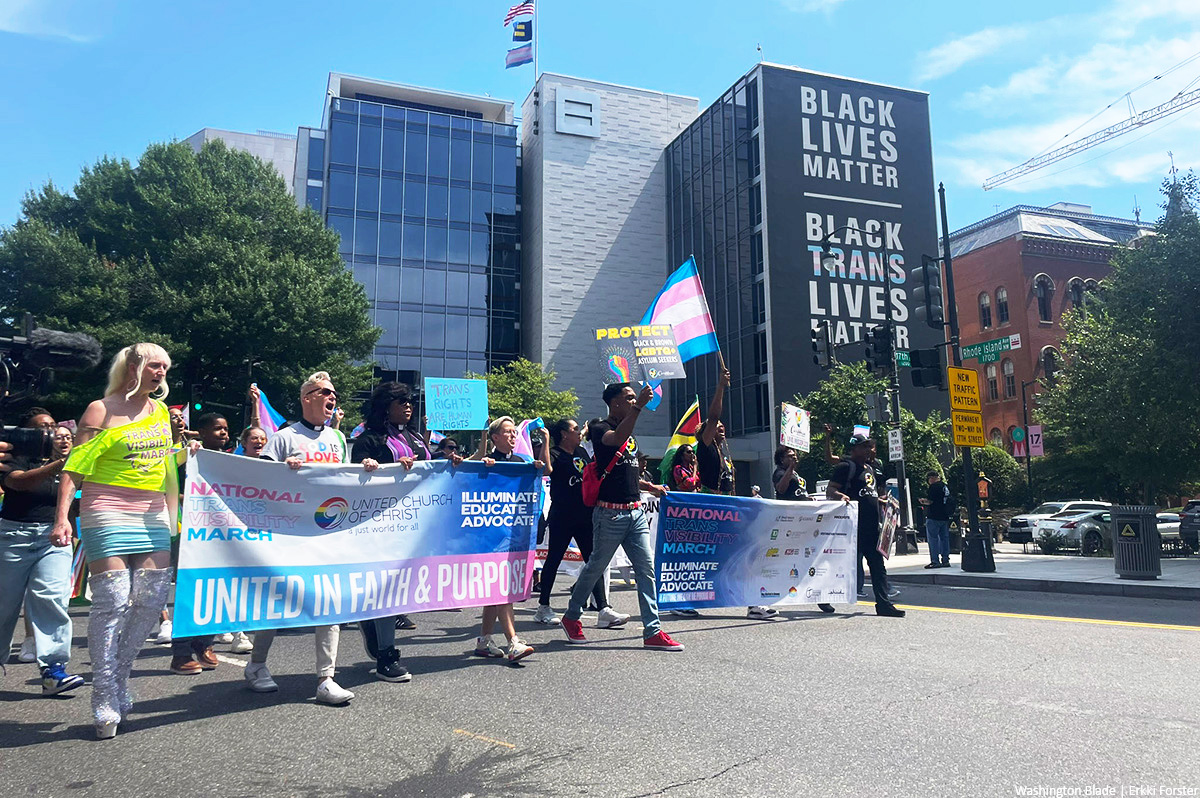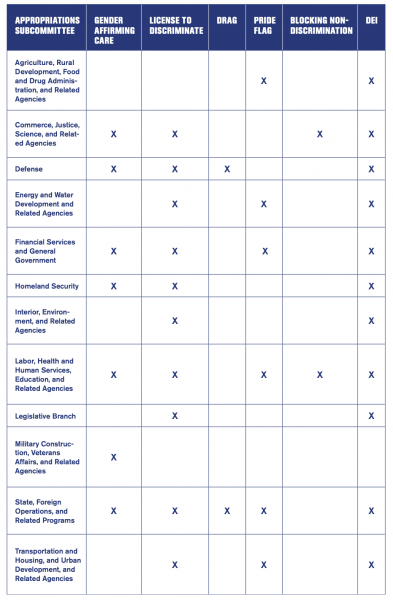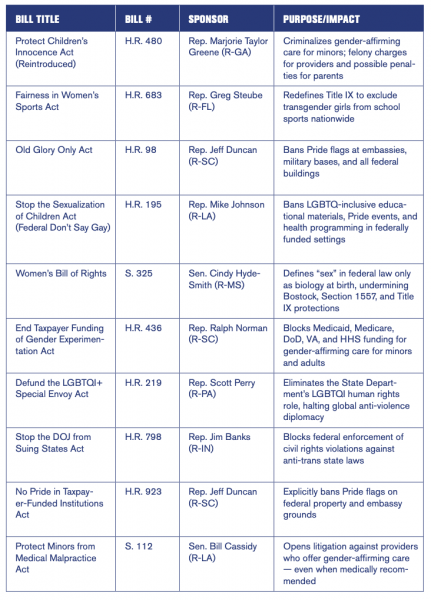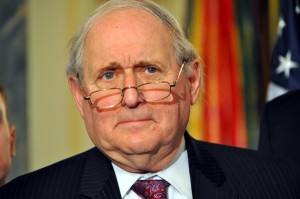News
Levin: Senate to take up ‘Don’t Ask’ in September
Senate Armed Services Committee Chairman Carl Levin (D-Mich.) told the Blade on Thursday he’s expecting the full Senate to take up “Don’t Ask, Don’t Tell” repeal in September after lawmakers return from August recess.
Advocates have been anticipating a vote on the fiscal year 2011 defense authorization bill — the vehicle to which repeal language is attached — after the Senate Armed Services Committee on May 27 attached the provision to the bill and reported out the legislation to the floor.
Levin said the quickest possible route for passing repeal in the Senate is now reaching an agreement this month to take up the defense bill shortly after lawmakers return from August break.
“What we’re hoping to do before August is to have an agreement which will pave the way for it being brought up right after the recess,” Levin said.
Bryan Thomas, a Levin spokesperson, later clarified that Levin was referring to an agreement negotiated between majority and minority leadership.
Levin, who had earlier said he was hoping for a vote on the defense bill in July, said this agreement would eliminate the possibility of a filibuster on a motion to proceed after lawmakers return.
Aubrey Sarvis, executive director of the Servicemembers Legal Defense Network, said his organization is also urging Senate Majority Leader Harry Reid (D-Nev.) to bring the defense legislation to the floor “right after the Labor Day recess.”
“Yes, it would have been better if we were on the Senate floor this month, but the calendar was just too crowded,” Sarvis said.
Sarvis said scheduling the defense bill for a vote in early September is “absolutely essential” to move forward with repeal to finish legislative action “before Congress goes into ‘lame-duck mode.'”
“This is the bill that provides for the pay and benefits and equipment for all service members, straight and gay,” he said. “This bill and these core benefits for our [service members] should not be caught up in post election games and posturing.”
In addition to wanting to move forward with the defense legislation, proponents of “Don’t Ask, Don’t Tell” repeal have expressed concern about opponents of the language filibustering the defense legislation as a whole, or stripping out the provision with a substitute amendment or a motion to strike.
Levin said he doesn’t think either a filibuster or an amendment would succeed, but added the odds of a successful amendment passing the Senate may “depend on what the wording is.”
The senator said he hasn’t seen any draft amendments relating to the “Don’t Ask, Don’t Tell” language, but predicted one would come to the floor.
“I haven’t seen it,” Levin said. “I know there will be, but I haven’t seen it.”
Sarvis said he shares Levin’s confidence that repeal language in the defense legislation can be retained.
“The Senate votes are likely to be close, but, in the end, I think, repeal proponents will prevail,” Sarvis said.
National
Study shows ‘pervasive mistreatment of LGBTQ people by law enforcement’
Findings claim nationwide police misconduct, including in D.C., Va., Md.

The LGBTQ supportive Williams Institute, an arm of the University of California at Los Angeles School of Law, released a report last month citing multiple research studies conducted over the past 25 years showing past and “ongoing” mistreatment of LGBTQ people by law enforcement throughout the United States.
“Findings show that LGBTQ communities – particularly LGBTQ people of color, youth, and transgender and gender nonconforming individuals – have faced profiling, entrapment, discrimination, harassment, and violence from law enforcement for decades, and this mistreatment continues to be widespread,” according to a Williams Institute statement.
“Experiences of police mistreatment may discourage LGBTQ people from reporting crimes or engaging with law enforcement,” Joshua Arrayales, the report’s lead author and Williams Institute Law Fellow said in the statement.
“Reporting crimes is essential for accurate crime statistics, property allocation of crime prevention resources, and support services that address the unique needs of LGBTQ survivors,” he said.
The 59-page report cites the findings of two dozen or more studies and surveys of LGBTQ people’s interaction with police and law agencies for the past 25 years through 2024 conducted by various organizations, including the ACLU, the National Coalition of Anti-Violence Programs, the Williams Institute, and local government agencies.
But the report does not provide a breakdown of where police abuse against LGBTQ people occurred by specific police departments or locations. Instead it provides survey research findings of large groups of LGBTQ people who responded to a survey in different locations of the U.S.
Among other things, those surveys have found “LGBTQ people are more likely than non-LGBTQ people to report being stopped by police, searched by police, arrested, and falsely accused of an offense,” the Williams Institute statement accompanying the report says. “LGBTQ people also report substantial rates of verbal harassment, physical harassment, sexual harassment, and assault,” it says.
The report itself cites surveys of LGBTQ people’s interactions with police in D.C., Baltimore, and Virginia but does not give specific cases or identify specific police departments or agencies.
“A 2022 study based on interviews with 19 Black transgender women from Baltimore and Washington, D.C. identified a theme of re-victimization while seeking help from police,” the report says. “One participant noted that male officers asked what she did to cause her own abuse,” according to the report.
“Other participants expressed that when a knowledgeable officer was present, such as an LGBTQ+ liaison, they felt more inclined to reach out for help,” it says.
The report also states, “A 2024 study based on interviews with 44 transgender people in Virginia documented two instances of transgender women being pulled over for broken tail lights and then being mistreated once officers discovered they were transgender based on their IDs.” The report does not reveal the specific location in Virginia where this took place.
Other locations the report cites data on anti-LGBTQ conduct by police include New York City, Chicago, Los Angeles, Palo Alto, Newark, N.J., and Austin and San Antonio in Texas.
The full report can be accessed at williamsinstitute.law.ucla.edu.
Research/Study
HRC study reveals GOP efforts to undermine LGBTQ rights and services in 2026
House Republicans are pushing numerous anti-LGBTQ measures in FY26 bills, that could threaten healthcare, nondiscrimination protections, and LGBTQ rights.

A new study by the Human Rights Campaign shows House Republicans continue to push anti-LGBTQ legislation, despite overwhelming nationwide support for nondiscrimination protections for LGBTQ people.
The study found that Trump-supporting Republicans are attempting to pass 52 anti-LGBTQ riders—unofficial amendments to legislation with little chance of passing on their own—across 12 of the must-pass FY26 federal appropriations bills.
If enacted, these riders would become a significant vehicle for undermining LGBTQ+ equality.

The riders impose broad anti-LGBTQ measures, including blocking gender-affirming care, erasing sexual orientation and gender identity data, restricting nondiscrimination protections, limiting support for LGBTQ+ communities, targeting global LGBTQ+ rights and public health, interfering in medical decisions, and curtailing LGBTQ+ participation in sports, education, and civic life.
In addition to the riders, congressional Republicans have used the rescissions process—where the government takes back money already approved for programs deemed no longer necessary—to remove funding from Biden-era programs that have served as major lifelines for the most vulnerable members of the LGBTQ community, particularly low-income individuals, transgender youth, and people living with or at high risk for HIV.
Together, these efforts, combined with an already hostile White House eager to remove funding from anything deemed too “woke” or “wasteful,” have created a sizable gap in federal funding for programs once seen as foundational. Funding for nondiscrimination, public health, housing, and civil rights is now at risk, as Republicans follow Trump’s lead.
The HRC report shows that these proposed bills would drastically affect many aspects of LGBTQ existence, highlighting actions that will harm LGBTQ Americans.
These include establishing a “First Amendment Defense Act,” which allows individuals, businesses, universities, and federally funded agencies to refuse services to LGBTQ+ people in the name of personal belief; pushing drag bans on military bases and in U.S. foreign aid programming; minimizing gender-affirming care by reducing funding and punishing medical providers; and even applying a global gag rule to gender-affirming care in U.S.-supported foreign assistance programs.
The study also highlights attempts to block Medicaid and Medicare reimbursement for gender-affirming care and efforts to restrict PrEP, HIV testing, and sexual health services—policies that will particularly harm transgender people. It details extensive Republican efforts to redefine “sex” as strictly biological in standalone bills, appearing in riders that would gut Section 1557 protections and affect access to HIV prevention, Ryan White services, Title X reproductive health, and HOPWA housing programs.

Additional bills listed criminalize or stigmatize LGBTQ identity and are informing restrictions on community health education, HIV prevention campaigns, school-based health centers, and public health research funding at the CDC and NIH.
“This country deserves leadership that uses its power to help meet the needs of the people. Instead, MAGA Republicans make everything about attacking transgender people,” said David Stacy, Human Rights Campaign Vice President of Government Affairs.
“They have now spent three years attempting to poison these must-pass bills with anti-LGBTQ+ riders that polarize the House appropriations process and weaponize the federal government against our community, while doing nothing to address the urgent needs of their constituents. The American people have been clear: anti-equality politicians should stop shirking responsibility and actually serve all of their constituents. Pro-equality members of Congress must defeat the latest wave of anti-LGBTQ+ provisions and hold the line against hate.”
On election night, HRC released a memo showing anti-trans ad campaigns are failing and Americans overwhelmingly support equality. Nearly two-thirds of Americans back federal nondiscrimination protections for LGBTQ+ people, including 58% of independents and 42% of Republicans.
Almost 7 in 10 say politicians are too uninformed about transgender youth healthcare to make fair policies, and nearly half think lawmakers shouldn’t focus on transgender issues at all. And 70% percent worry politicians are targeting LGBTQ youth to divide the country and score political points.
The White House
SPJ calls for take down of Trump’s ‘media offenders’ website
White House launched online database on Monday

The Society for Professional Journalists has called out the White House for creating a website that targets individual journalists and news outlets that publish unfavorable coverage of the Trump-Vance administration.
In a letter to White House Press Secretary Karoline Leavitt on Monday, the SPJ — the nation’s most broad-based journalism organization, which works to protect the free practice of journalism with high ethical standards — asked the White House to take down its website singling out journalists for negative coverage of the administration.
“Journalists have a constitutionally protected and societally encouraged duty to hold power to account. They are not political opponents to be tracked, cataloged or punished,” the letter signed by SPJ National President Chris Vaccaro and SPJ Ethics Committee Chair Dan Axelrod.
“By publishing reporters’ names, outlets and specific stories, the White House is naming and shaming members of the press in a highly charged political and social environment. SPJ regards this as a form of online harassment that exposes journalists to potential threats and even violence.”
The website currently lists 23 outlets as “Media Offenders of the Week,” singling out national organizations like CBS News, the Boston Globe, and the Independent. The website says these particular organizations “misrepresents and exaggerates President Trump.”
The letter goes on to explain that there are more civil ways to disagree with published stories without singling out people for doing the only constitutionally protected job in the country.
“There are well-established ways of resolving disagreements over the fairness or accuracy of stories. The White House web page attacking so-called ‘media offenders’ ignores these principles and instead denigrates and attacks reporters.”
It also highlights how Trump often attacks women journalists in particular, noting that two weeks ago he told White House correspondent Catherine Lucey from Bloomberg News to be “quiet piggy” after she asked questions related to Trump’s relationship with sex offender Jeffery Epstein on Air Force One.
“Journalists, particularly women, already face an enormous amount of online harassment, and this can convert into physical violence. As you know, women journalists have also been publicly insulted by the president in recent weeks.”
The letter also explains that attacks like this on the legitimate press can cause tensions between journalists who attempt to hold those in power responsible and the public who consumes the rhetoric.
“This page, which categorizes reporting as ‘lies,’ ‘left-wing lunacy,’ and ‘malpractice,’ has a chilling effect on coverage. It undermines the healthy democratic relationship in which journalists hold power to account.”
The letter also draws a connection to how the Russian authoritarian dictatorship references media it dislikes, saying, “The president’s new ‘media offenders’ list mirrors a 2017 initiative by the Kremlin that labeled independent journalism as ‘fake news.’ The United States should not follow that example.”
“SPJ believes civility must be restored between the media and the Administration. Removing this page would be a vital first step toward lowering the temperature and reinforcing America’s commitment to free expression.”
The SPJ’s code of ethics, widely regarded as the ethical standard for good journalism, has four main pillars: Seek Truth and Report It, Minimize Harm, Act Independently, and Be Accountable and Transparent. The code was adopted in 1926 from the American Society of Newspaper Editors and has been revised multiple times since then, including in 1984, 1987, 1996, and most recently in 2014.
NLGJA, the The Association of LGBTQ+ Journalists is the journalist-led association that works within the news media to advance fair and accurate coverage of LGBTQ+ communities and issues, provided a statement to the Blade on the website and supports the SPJ’s public call for removing the website to restore faith in journalistic freedom in the U.S.
“We stand with SPJ in urging the Trump administration to remove its website targeting so-called “media offenders.” While NLGJA believes that media organizations should be held to the highest standards of accuracy and ethical reporting, this website does nothing to support a healthy press environment,” National Board President Ken Miguel told the Blade via email. “Instead, it undermines public trust in the free press, enables the harassment and targeting of journalists, and hinders their ability to cover the news fairly and accurately. Journalists must be able to do their work without fear of government retaliation.”
The White House has not responded to the Washington Blade’s request for comment on the letter.
-

 The White House3 days ago
The White House3 days ago‘Lavender Scare 2.0’: inside the White House’s campaign against LGBTQ federal employees
-

 a&e features3 days ago
a&e features3 days agoMeet Mr. Christmas
-

 District of Columbia4 days ago
District of Columbia4 days agoActivists praise Mayor Bowser’s impact on city, LGBTQ community
-

 Japan5 days ago
Japan5 days agoTokyo court upholds Japan’s same-sex marriage ban





















